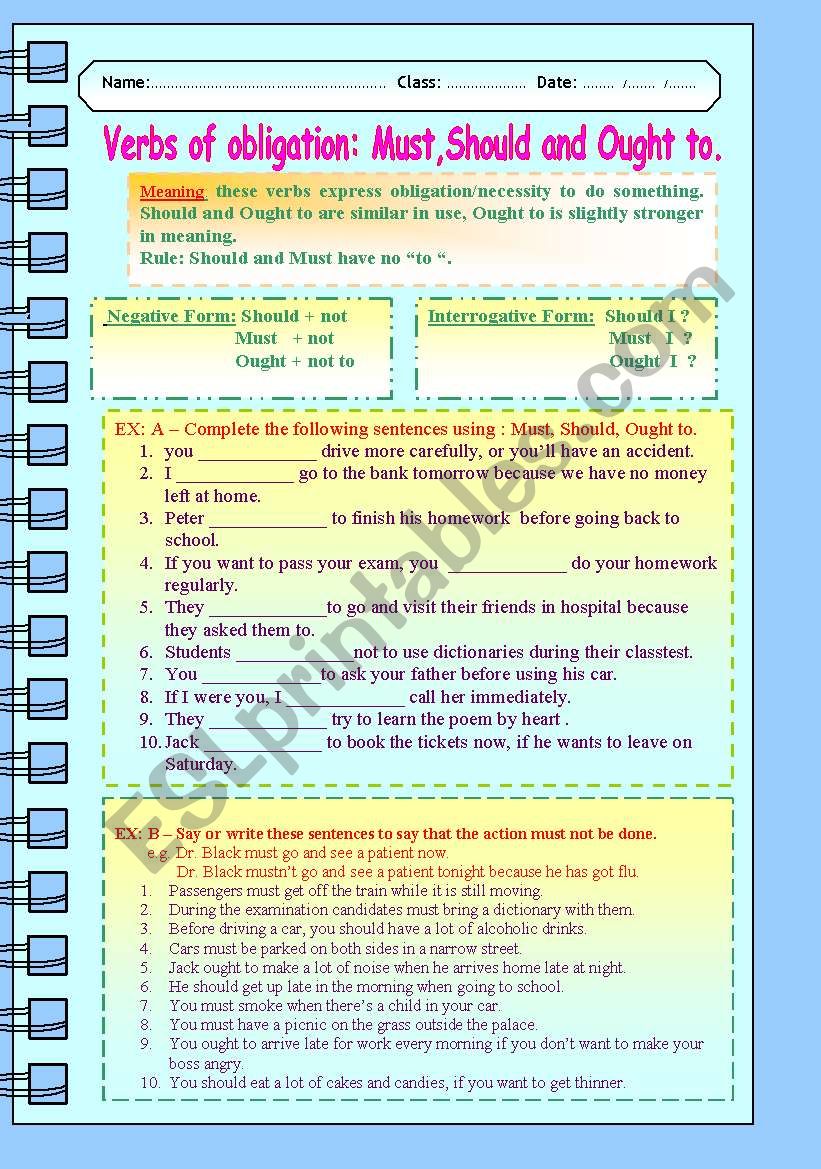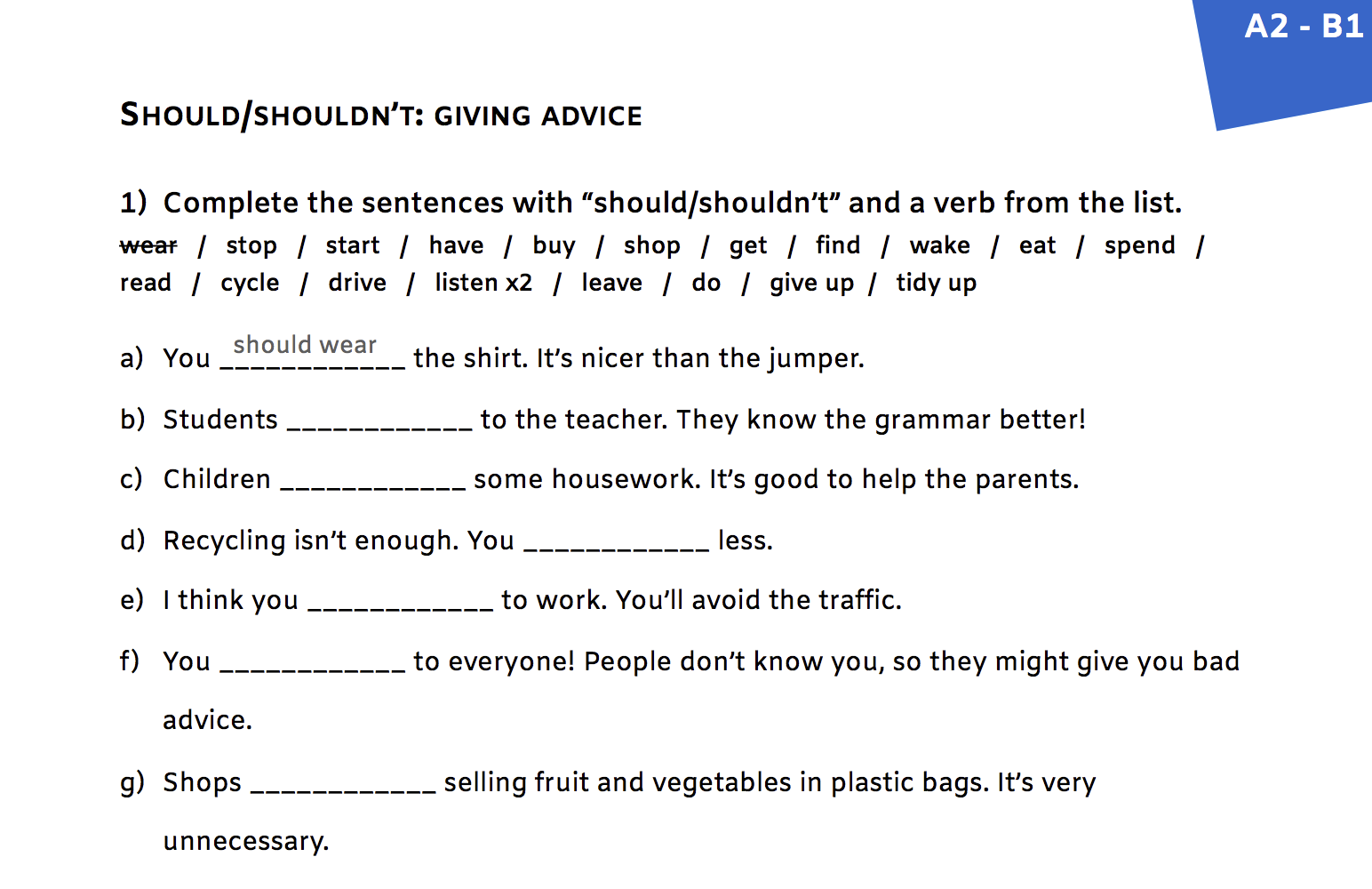
It's too bad I am so short! If I were taller, I _play basketball.ġ. It's too bad I am so short! If I were taller, I shall play basketball. If it were not raining, we _go for a walk.

If it were not raining, we will go for a walk. Incorrect: They shall have a meeting later.Ĭorrect: They _ have a meeting later.Ģ. Correct the mistakes by adding the correct modal verb.ġ. There is a mistake in each of the sentences below. She has a beautiful voice! She _ record a CD! He _ stop drinking so much coffee, or he will make himself sick! He _ go inside, or he will get a terrible sunburn! Sometimes more than one answer is correct. I have worked too long! I _ take a break! Exercise D: Should, Ought to, or Had Better?Ĭomplete the sentences with the correct modal verb. If you want to camp in the park, you _ pay for a permit first.ĥ. The judge said that he will _ make a formal apology to the public on television.Ĥ. Professor, do we _ finish all the exercises on the test?ģ. Wow, my house is a mess! I really _ clean a bit!Ģ. That looks like fun! _ we paint some eggs with you? Exercise C: Need to or Have To?Ĭomplete the sentences with need to or have to.ġ. He is running very well! I think he _ win!

That looks delicious, and I am so hungry! _ I have some? They look just the same! I am sure that boy _ be his son. Oh no, I think they _ be hurt! But I'm not sure. Exercise B: Must, Might, or May?Ĭhoose the correct modal verb to complete the sentence under each picture. When we were younger, we _ watch movies all afternoon! Now we think it's boring. Excuse me, _ you tell me where the bus station is?ģ.

I don't think I will have much work next week.

Many years ago, people could travel without passports.When I was young, I could eat tons of ice cream!.We use could to talk about what we were able to do in the past and to talk about ability in conditionals. She can help you with your homework later today.We use can to talk about things that we are able to do in the present or the immediate future. These modal verbs are usually used to show ability. They contain complete lesson plans with absolutely everything you need to teach or learn the modal verbs in English. In these worksheets, we will review the following groups of verbs:įor complete information on modal verbs, you can try our English Modal Verbs Series. In English, we use modal verbs all the time! It is very important to understand the different ways that we can use each verb. Modal verbs are special kinds of verbs in English that express ability, permission, obligation, possibility, and polite requests. First, we will look at some examples, and then you can practice with the exercises. These worksheets will help you review how and when to use modal verbs.


 0 kommentar(er)
0 kommentar(er)
